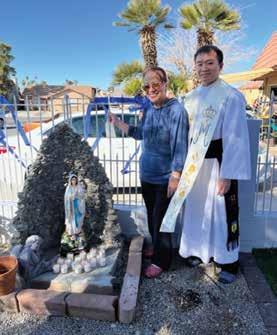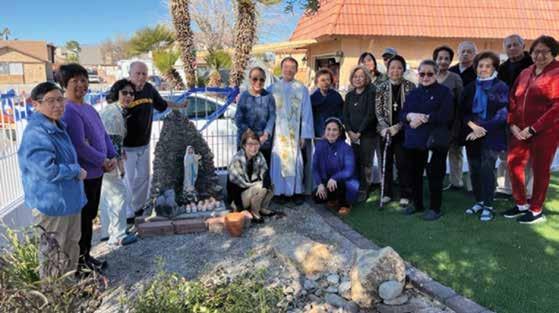
1 minute read
Magic memory pill 882 soccer teams to participate in 2023 Las Vegas


Advertisement
at “turning back the clock on aging,” but new studies show that scientists may be able to achieve the same without using another person’s blood.
Researchers from Columbia University in New York reported that “an anti-inflammatory drug can rejuvenate the system which manufactures blood in the body and possibly increasing the human lifespan by decades!”
The investigators, scientist Passegue and graduate student Carl Mitchell, discovered “the anti-inflammatory drug anakinra, approved for use in rheumatoid arthritis cases, reverses some of the effects of aging on the hematopoietic system. The drug is available under the brand name Kineret…Administering the drug returned aging blood to a younger and healthier state.” And this means extending lifespan!
Published in the journal Nature Cell Biology, this wonderful and exciting discovery, when worldwide clinical trials confirm its effectiveness, might just be the fountain of youth Ponce de Leon and all of us have been searching for.
Manicures and cancer
Many women prefer gel manicure because it lasts longer and do not easily chip. However, ultraviolet light from nail lamps has been associated with increased risk for cancer, according to some studies. The long wavelengths of ultraviolet light (UVA) from the UV nail dryer can damage the DNA and cause mutation in human cells that elevates the risk for skin cancer.
In other studies, using a strong sunscreen prior to gel manicure appear to lessen the risk. Having gel manicure, without UV dryer, appears to be a logical, safer, alternative.
Coffee and liver disease
There is a dual epidemic of obesity and type 2 diabetes mellitus around the world. Obesity increases the risk for diabetes, heart disease, and cancer. Losing 30 to 50 percent of body weight among the severely overweight by strict dieting have been founds to cure diabetes, even to the point of stopping insulin for good. This is no longer a theory but a proven scientific fact.
New studies found that coffee “helps protect against nonalcoholic fatty liver disease (NAFLD) among people with obesity and type 2 diabetes (T2D)…caffeine intake was correlated with decreased liver fibrosis in NAFLD and other chronic liver-related illnesses.”
Portuguese scientists discovered that caffeine and polyphenols in coffee may reduce the severity of NAFLD among those with obesity and type 2 diabetes.
The research was sponsored by the Institute for Scientific Information on Coffee (ISIC) and was reported in the journal
Nutrients






